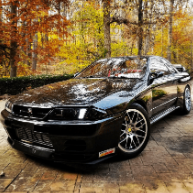Eating Before/after Exercise - Weight Loss And Recovery
Announcements
-
Latest Posts
-
By GabsReDeal · Posted
I refreshed the OEM injectors with the kit and connected it up. It now ideals okay even with the IACV removed. Driving still has the same cutoff issue like the 550cc injectors so the issue is somewhere else. I bought FPG's Fuel Pump Hanger. I will be installing it next, but it is not as straightforward as I thought it was with my limited wiring knowledge and no instruction on the specific model I purchased (FPG-089). I also got the incorrect billet clamp as I could not find info on the OEM sizing. -
Stop looking at the garage floor, and turn the radio up a bit louder if there's any strange noises...
-
No. Turbo shuffle and surge/flutter are not the same thing. Specifically, on a GTR, turbo shuffle has a definite meaning. On a GTR, the twin turbos are assumed to be the same thing and to operate the same way, exactly. In reality, they do not. Their exhaust sides are fed and exhaust a little differently, to each other. Their inlet sides are fed and exhausted a little differently, to each other. Consequently, when they are "working" they are often at slightly different points on the compressor map compared to each other. What this means, particularly when coming on boost, is that one of them will spool up and start producing extra flow compared to the other, which will put back pressure on that other compressor, which will push the operating point on that other compressor up (vertically). This will generally result in it bumping up against the surge line on the map, but even if it doesn't, it upsets the compressor and you get this surging shuffle back and forth between them That is "turbo shuffle" on a GTR. It is related to other flutter effects heard on other turbo systems, but it is a particular feature of the somewhat crappy outlet piping arrangement on RB26s. There are plenty of mods that have been attempted with varying levels of success. People have ground out and/or welded more material into the twin turbo pipe to try to prevent it. Extending the divider inside it works, removing material doesn't. There are aftermarket replacement twin turbo pipes available, and these exist pretty mush purely because of this shuffle problem.
-
You can temporarily* use lock collars to keep it in place until you can do the bushes, back the nuts off, slide them in, snug back up. *temporarily is often for ever
-
By nouveau_poor · Posted
Thanks for the quick reply. To be clear, when you say turbo shuffle do you mean turbo flutter "stustustu" or referring to something else? I had thought they were the same thing. When I wrote the post my intention was to say it wasn't a flutter/compression surge sound. My understanding was that a flutter sound would be occurring when throttle is released, whereas I can keep the throttle in the same position for this noise
-





Recommended Posts
Create an account or sign in to comment
You need to be a member in order to leave a comment
Create an account
Sign up for a new account in our community. It's easy!
Register a new accountSign in
Already have an account? Sign in here.
Sign In Now